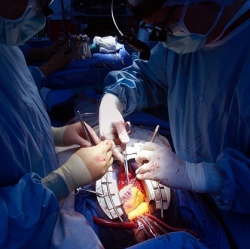
A British team of researchers has developed what might be a simple blood test that can detect all cancers. Scientists from the University of Bradford have so far used their technique on three types of cancer with promising results. It is hoped that in time the test could prevent costly and invasive procedures such as colonoscopies and biopsies.
But researchers say it is still very early days and much more work is needed. Blood tests have been used before to detect different types of cancer, but the Bradford team hopes to develop a universal test for all cancers. The technique involves subjecting white blood cells to ultraviolet light which damages the cells’ DNA.
So far tests on the blood of melanoma, colon and lung cancer patients have shown the DNA is more easily damaged compared with healthy volunteers. Those patients with pre-cancerous conditions showed an intermediate level of damage. The researchers believe the results would not be affected by illnesses such as colds or flu that may affect the immune system.
Prof Diana Anderson, from the University of Bradford’s School of Life Sciences, who led the research said: "White blood cells are part of the body’s natural defence system. "We know that they are under stress when they are fighting cancer or other diseases, so I wondered whether anything measureable could be seen if we put them under further stress with UVA light.
"We found that people with cancer have DNA which is more easily damaged by ultraviolet light than other people, so the test shows the sensitivity to damage of all the DNA, the genome, in a cell. "These are early results completed on three different types of cancer and we accept that more research needs to be done; but these results so far are remarkable."
